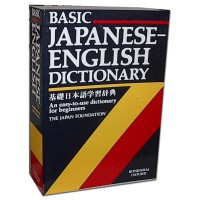
There is also a Japanese joke about urination based on the phrase “5-4-4” which reads go shishi in Japanese. Many words in Hawaiian pidgin are derived from the Japanese language. You also may hear a lot of the local Hawaiian keiki (children) saying this to their Auntie, or Tutu (grandmother). You can use this to politely tell whoever you need to, that you have to go pee. I mean really, how many times can you use the mainland equivalent of “whatchamacalit” before you sound ridiculous? This Hawaiian slang term can literally mean anything…seriously! Da Kine is the ultimate pidgin phrase! “Eh, you get any da kine?” or “Shelly went to get da kine, from da kine, ova da kine” It can be a bit tricky to understand, but incredibly useful. Although it seems obvious, there’s a big difference between saying “hello” and saying “what’s up?” The locals are always excited to meet new people and “talk story” (chat, shoot the breeze). “Howzit?” is a Hawaiian slang phrase for “Hey, how’s it going?” You’ll hear this one quite often, as you traverse the islands. As I said before, be selective if you choose to try this one on your vacay, because speaking it to the wrong braddah can get you snatched up by 5-0!! The word “paka” translates to tobacco, and “lolo” means crazy hence Pakalolo is the term the local kine use in reference to excellent marijuana (mainlanders might refer to it as ‘MauiWowie’). This is pidgin to the max! Saying this one to the wrong person can definitely land you in jail. That’s YOU, brah! An outsider, stranger, tourist, non-islander, they know you! Pronounced may-ly-hee-nee (better get that straight, tourist!) this is about someone that wears socks and shoes, instead of “rubbah slippahs.” This term should not be confused with make (mah-kay) which means “dead,” i.e. Pau (pronounced pow) generally translates to “no more,” “all gone,” or “time’s up.” The term pau hana means “after work,” and references the best Happy Hours on the islands. This is pretty much what you say if your vehicle shits the bed. The most common phrase you will hear relating to this word, is “Mahalo for your k ō kua,” which basically means “thanks for your help!” This pidgin phrase is important, because as a visitor, if a native asks for your brief assistance, you should be able to understand and offer it out of respect.

K ō kua luau is an extension of the saying, and directly translates to a stronger form of assistance, meaning “to contribute.” The Hawaiian slang phrase k ō kua simply means to help or assist. The New Testament was published in 2000.You may see this on local signs here and there. The literacy rate in Pidgin is unknown in standard English it is estimated at 66%–75%. It is used in some radio and television programs. 50% of children in Hawaii do not speak English when entering school, yet English as a second language is generally not taught to Pidgin-speaking children. It is accepted by many as an important part of local culture, a distinctive local language but it is looked down on by others. Plays, novels, short stories, and essays are produced constantly. It is used in personal communications, blue collar, farm, and fishing work, and among friends in nearly all social groups.

It is used unofficially in courts, sometimes with interpreters. It is the native speech of about half of those born or brought up in Hawaii, regardless of racial origin. Alternate names are Pidgin, Hawai‘i Creole, and Hawai‘i Creole English. They live in Hawaii, Alaska and the United States mainland.

Nonnative speakers are estimated at between 300,000 and 400,000. Native speakers of Hawai‘i Pidgin numbered around 600,000 in 2011, 100,000 to 200,000 with low proficiency in standard English.


 0 kommentar(er)
0 kommentar(er)
